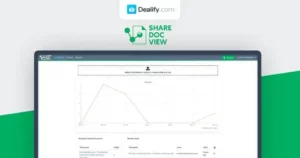SaaS Products are powerful tools for businesses, but how do you choose the right one? With countless options available, making an informed decision is crucial to maximizing your investment. Let’s explore some effective strategies together!
Do Your Homework on the Developer and the Company
Before jumping into a software deal, it’s smart to do your homework on the developer and the company behind the product. Start by looking at their background and experience. How long have they been in business? What do other users say about them?
Check Reviews and Testimonials
Read user reviews and testimonials on trusted platforms. Real opinions can give you insights that marketing materials might not show. Look for patterns in feedback to spot both strengths and weaknesses of the product.
Explore Their Support Options
Good customer support can make a huge difference. Check if the company provides various support channels, like email or chat. Responsive support can help solve issues quickly and effectively.
Investigate Their Update History
Find out how often the company rolls out updates. Regular updates often mean the company is committed to improving their product and keeping it secure. Look for recent patch notes or changelogs to see how they’ve responded to user feedback.
Look at Their Community Involvement
A strong user community can be a plus. Check forums, social media, or even user group events. A vibrant community can help answer questions and provide helpful tips.
By doing your homework on the developer and the company, you set yourself up for a better deal. Understand who you’re buying from, and you’ll feel more confident in your investment.
Check what Features Have Been Rolled Out Recently

When considering a SaaS product, you should check which features have been rolled out recently. New features often show how active the development team is. Updates can mean better functionality and security for you.
Review the Latest Updates
Visit the product’s website or blog to find information about recent updates. Look for release notes or changelogs. These documents detail what’s new and what has been improved.
Understand the Feature Benefits
Each new feature should add value to the product. Take a closer look to see how the latest features can benefit your business. For example, if a new reporting tool is added, it could help streamline your processes.
Check User Reactions
After a new feature is released, see how users respond. Look at reviews or feedback to gauge if the update delivers on its promises. Positive reactions can be a good sign that the feature is useful.
Compare with Competitors
See how the features stack up against similar products. A SaaS product that keeps innovating is usually a better choice. If competitors are rolling out better features, you might need to reconsider your options.
Monitoring what features have been rolled out recently helps you make informed decisions. It’s all about choosing a product that meets your needs and keeps getting better.
Look at Their Roadmap
When choosing a SaaS product, it’s important to look at their roadmap. A roadmap shows you the future plans of the company. It gives you an idea of where the product is heading.
Understand the Product Vision
A clear roadmap outlines the developers’ vision. Look for major updates planned in the future. This helps you understand if the product will keep improving.
Check for Milestones and Features
Roadmaps often list milestones and features that are on the way. This can include new tools or improvements. Knowing what’s coming can help you decide if it meets your long-term needs.
Assess Timing and Commitment
Look for actual dates on the roadmap. A timeline shows how committed the company is to their plans. If dates are vague, it may raise red flags about their reliability.
Keep an Eye on User Feedback
Sometimes, roadmaps change based on user feedback. It’s a good idea to see how responsive the company is to its users. This can signal whether they value customer input.
By looking at their roadmap, you gain insights into the product’s future. This helps you make a more informed decision about your investment.
Chat with Their Support

Before committing to a SaaS product, it’s wise to chat with their support team. This step gives you a peek into how responsive and helpful they are. Good support can make a big difference in your experience.
Ask Questions About the Product
When you reach out, ask specific questions about the product. Inquire about features, pricing, or technical details. A knowledgeable support team will provide clear answers and make you feel confident.
Test Their Response Time
Pay attention to how quickly they respond. Fast replies generally show that the company values its customers. If you don’t hear back soon, it might be a sign to think twice.
Evaluate Their Tone and Friendliness
The tone of their communication matters, too. A friendly, helpful attitude suggests the company cares about its users. If the support feels robotic or unapproachable, that could be a red flag.
Check for Available Resources
See if they have online resources, like FAQs or tutorials. These can be super helpful for self-service. A good support system offers various ways for users to find answers.
Speaking directly with support shows how the company interacts with customers. This information can help you decide if the SaaS product is the right fit for you.
Decide Whether the Product Fills a Current or Upcoming Need
When looking at a SaaS product, decide whether it fills a current or upcoming need. This step is important for your business’s success. You want to invest in solutions that are relevant and useful.
Identify Your Needs
Start by listing your current business needs. What problems are you facing right now? Knowing these needs helps you find solutions that directly address them.
Think About Future Goals
Also consider your future goals. Are there projects or changes planned that the product can help with? A good SaaS solution should grow with your business.
Evaluate the Product Fit
Next, evaluate how well the product fits these needs. Does it offer specific features that match your requirements? Look for demo videos or trials, if available, to see the product in action.
Gather Input from Your Team
Involve your team in the decision-making process. Get their feedback on whether the product will help them. Different perspectives can highlight important aspects you might miss.
Deciding whether the product fills a need is key to making a wise investment. With the right fit, you can optimize your operations and enhance productivity.




